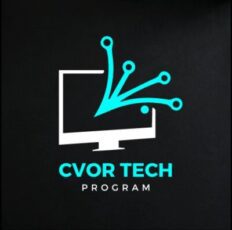What is a cvor tech?


A number of specialized professions support the efficient operation of medical facilities in today’s quickly expanding healthcare sector. The position of a CVOR tech is one of these vital positions. These knowledgeable specialists are crucial to the success of difficult cardiovascular procedures. We’ll get further into the world of CVOR technicians in this post as we examine their roles, education, values, and effects on patient care.
Cvor meaning?
The abbreviation CVOR stands for “Cardiovascular Operating Room.” In a hospital or other medical facility, it refers to a specialized section where surgeries involving the heart and blood vessels take place. The CVOR is a regulated setting outfitted with modern medical tools and equipment required for cardiovascular operations. To carry out complex treatments that address cardiac and vascular diseases, skilled healthcare professionals work in collaboration with one another, including surgeons, nurses, anesthesiologists, and CVOR technologists. The CVOR is essential to assuring the success and security of cardiovascular procedures, which are frequently difficult and demand accuracy and knowledge.
The Varied Responsibilities of a CVOR Tech
CVOR techs are multitasking experts, contributing to various aspects of the surgical process. Their responsibilities are:-
Preparing the Operating Room
The CVOR tech is in charge of setting up the operating room before a procedure starts. To ensure a smooth procedure, this requires setting up surgical tools, sterilizing equipment, and checking that everything is in place.
Assisting Surgeons
In the course of surgery, CVOR technicians aid surgeons by transferring tools, sutures, and other essential supplies. Their comprehensive knowledge of the technique enables them to predict the surgeon’s requirements, increasing efficiency.
Operating Equipment
CVOR technicians are skilled at using a variety of medical tools and equipment, such as defibrillators and heart-lung machines. They keep a careful eye on these gadgets and adapt in real time as necessary.
Patient Care
They are essential to the patient’s treatment because they assist in setting up the patient on the operating table, ensure their comfort, and respond to any worries they may have.
Sterilization and Cleanup
For future surgery, CVOR technicians are involved in sanitizing and cleaning the surgical area in order to prepare it for the following procedure.
What is a CVOR Tech Program?
A CVOR Tech program is a specialized educational path designed to prepare individuals for a career as a Cardiovascular Surgical Technologist. These programs typically cover a wide range of topics, ensuring that students receive a well-rounded education in surgical technology, with a focus on cardiovascular procedures.
Curriculum Highlights
Anatomy and Physiology: A strong foundation in understanding the cardiovascular system is essential. CVOR Tech programs delve deep into the anatomy and physiology of the heart and blood vessels.
Surgical Techniques: Students learn about surgical instruments, sterilization procedures, and aseptic techniques. They become proficient in maintaining a sterile environment during surgeries.
Cardiovascular Procedures: The heart of the curriculum revolves around cardiovascular surgeries. Students gain in-depth knowledge of procedures like bypass surgeries, valve replacements, and angioplasties.
Patient Care: CVOR Techs are also responsible for patient care. Programs include training on patient preparation, positioning, and monitoring during surgery.
Medical Ethics and Communication: Compassion and effective communication are vital in healthcare. Students are taught how to interact with patients, families, and the surgical team while adhering to ethical standards.


Why Choose a CVOR Tech Program?
High Demand: The demand for qualified CVOR Techs is consistently high. Hospitals and surgical centers actively seek skilled professionals to join their teams.
Rewarding Career: Working as a CVOR Tech allows you to make a direct impact on patient outcomes. You’ll play a crucial role in saving lives and improving cardiac health.
Career Advancement: With experience, CVOR Techs can advance to supervisory roles or specialize in specific cardiovascular procedures, further enhancing their career prospects.
Job Stability: Healthcare careers tend to be recession-resistant, offering job stability even in uncertain economic times.
Shorter Training Period: CVOR Tech programs are typically shorter than many other healthcare programs, making it an efficient way to enter the healthcare field.
The Path to Becoming a CVOR Tech
Becoming a CVOR tech involves a specific educational and training journey:
Educational Requirements
The majority of CVOR technicians have completed high school. To learn more about cardiovascular operations, however, many enroll in specialist training courses.
Training Programs
Specialized training programs cover subjects like anatomy, medical terminology, and surgical technology. These programs often include hands-on clinical experience to develop practical skills.
Certification
While not always mandatory, obtaining certification showcases a CVOR tech’s expertise and commitment. The Certified Surgical Technologist (CST) designation is widely recognized in the field.
The Crucial Role of CVOR Techs in Patient Care
The role of a CVOR tech is pivotal in ensuring patient safety and positive surgical outcomes. Their careful preparation, precise assistance, and vigilant monitoring contribute to the success of complex cardiovascular surgeries.
Impact on Healthcare Ecosystem
In the broader context of healthcare, CVOR techs form a critical link in the chain of medical services. Their expertise not only supports surgeons but also fosters an environment of trust and reliability for patients and their families.
How to become a cvor tech?
You must pursue a particular educational and training path to become a CVOR (Cardiovascular Operating Room) tech. A step-by-step tutorial on how to become a CVOR tech is provided below:


Educational Requirements:
Starting with at least a high school graduation or its equivalent, most CVOR technicians. However, many people pursue specialized training and education in order to succeed in this sector.
Enroll in a Surgical Technology Program:
Find community colleges, technical schools, or other vocational institutions that provide approved surgical technology programs. These courses offer thorough instruction in surgical techniques, medical technology, and patient care.
Complete the Training Program:
The normal period of the surgical technology curriculum is one to two years. You will learn topics including anatomy, medical jargon, surgical techniques, and safe procedures throughout this period. An essential component of the curriculum is practical training in environments that replicate operating rooms.
Gain Clinical Experience:
An element of clinical rotation is present in many educational programs. You get the chance to practice operating under the supervision of qualified specialists in actual operating rooms. You will gain practical experience in preparing operating rooms, sterilizing equipment, and helping with procedures.
Prepare for the CST Exam:
You must pass the CST exam in order to be certified. Surgical technology is covered comprehensively in this test in a variety of ways, including surgical techniques, patient care, and safety procedures. You can get ready by using the study materials and sample tests that are accessible.
Pass the CST Exam:
Successfully pass the CST exam to earn your certification. This achievement showcases your proficiency in surgical technology and makes you more competitive in the job market.
Seek Employment:
You’re prepared to begin your job as a CVOR technician now that you have your education and certification in hand. In hospitals, surgery centers, and other healthcare facilities, look for job openings. You can also locate chances by networking and contacting industry experts.
Continuing Education:
It’s necessary to stay up with the most recent developments and methods in healthcare because it is a field that is always developing. Think about going to seminars, meetings, and continuing education courses to enhance your skills and knowledge.
Build Experience and Advance:
You will have the opportunity to take on more responsibility or maybe advance up to leadership positions as a CVOR technician. Your capacity to pick up new skills and adjust to cutting-edge procedures and technology will determine how successful you are.
Keep in mind that becoming a CVOR tech demands commitment, focus on detail, and a desire to assist others.
The Significance of CVOR Surgical Technologists
CVOR Surgical Technologists play a pivotal role in ensuring the success of cardiovascular surgeries. They are priceless assets in the operating room because of their accuracy, attention to detail, and capacity for working under pressure. These specialists allow surgeons to concentrate completely on the complex components of the surgery by offering constant assistance to the surgical team, eventually enhancing patient outcomes.
In conclusion, CVOR Surgical Technologists are the unsung heroes who work diligently behind the scenes to make complex cardiovascular surgeries possible. Their dedication, expertise, and commitment to patient safety make them an indispensable part of the healthcare team, and their role is crucial in saving lives and improving the quality of healthcare in the field of cardiovascular surgery.
What Are the Responsibilities of a Cardiovascular Surgical Tech?
A cardiovascular surgical tech’s responsibilities include supporting a cardiac surgeon before, during, and after heart surgery or another procedure of a similar nature. They assist with prior treatment and transportation as well as setting up the CVOR (cardiovascular operating room). Throughout the procedure, they support the surgical team, monitor the patient’s health, and transport the patient to the recovery area. A surgical technologist must possess both certification and a postsecondary degree to practice.
Challenges and Rewards
While the role of a CVOR Tech can be demanding and fast-paced, it is also incredibly rewarding. The satisfaction of knowing that their work makes a difference in the lives of patients is a driving force for many in this profession.
Conclusion
In conclusion, a CVOR tech’s position is both flexible and crucial. Their experience and specialized training have given them knowledge that is crucial to the success of cardiovascular procedures. CVOR technicians will continue to be a vital part of modern medical procedures as healthcare technology develops.
FAQs
Q1: What is the primary responsibility of a CVOR tech?
A: The primary responsibility of a CVOR tech is to assist the surgical team during cardiovascular surgeries by preparing the operating room, passing instruments, and operating equipment, and ensuring patient comfort.
Q2: Is certification necessary to become a CVOR tech?
A: While not always mandatory, certification, such as the Certified Surgical Technologist (CST) designation, showcases expertise and can enhance job prospects.
Q3: How does a CVOR tech contribute to patient care?
A: CVOR techs contribute to patient care by ensuring the operating room is prepared, assisting surgeons, operating medical devices, and supporting patient comfort.
Q4: What is the significance of CVOR techs in the healthcare ecosystem?
A: CVOR techs play a crucial role in the healthcare ecosystem by supporting surgeons, maintaining equipment, and fostering trust with patients.
Q5: How do CVOR techs impact surgical outcomes?
A: CVOR techs impact surgical outcomes positively through their precise assistance, careful monitoring, and expertise in cardiovascular procedures.




